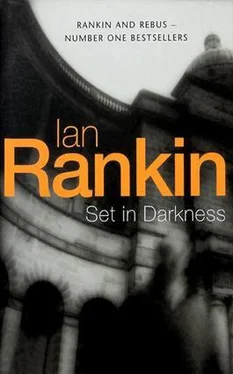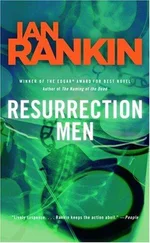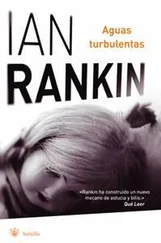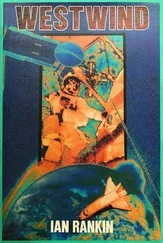‘How did you get on with Mr Grieve?’
‘Fine.’
‘Never any problems?’
‘Never.’
‘And Ms Banks?’
‘Do you mean how did I get along with her, or how did she get along with Roddy?’ Light glinting from the circular chrome frames of his spectacles.
‘Both, I suppose.’
‘Fine.’
‘Yes?’
‘That’s my answer to both questions: we got along fine.’
‘Right.’
And on it went, like machine-gun fire. Hall’s background: party man, single-minded, economics degree. Economy his strong point when speaking, too.
‘Press agent... Is that like a spin doctor?’
A bending of the mouth. ‘That’s a cheap shot, Inspector Linford.’
‘Who else was in Mr Grieve’s retinue? I’m assuming there’d be local volunteers...?’
‘Not yet. Electioneering proper doesn’t start until April. That’s when we’d have needed canvassers.’
‘You had people in mind?’
‘Not my bailiwick. Ask Jo.’
‘Jo?’
‘Josephine Banks, his election agent. That’s what we called her: Jo.’ A glance at his watch, loud exhalation.
‘So what will you do now, Mr Hall?’
‘You mean when I leave here?’
‘I mean now your employer’s dead.’
‘Find another one.’ A genuine smile this time. ‘There’ll be no shortage of takers.’
Linford could see Hall five or ten years down the line, standing just behind some dignitary, maybe even the Prime Minister, murmuring something which the PM would utter aloud mere seconds later. Always in shot; always close to the power.
When the two men stood up, Linford shook Hall’s hand warmly, offered him a grin and a cup of tea or coffee.
‘Really appreciate... sorry to have... wish you all the best...’
Because you never knew. Five, ten years on, you just never could tell...
‘Tell me this is a joke.’
Ellen Wylie was examining the dimly lit interior of one of the downstairs interview rooms. It was half-filled with broken equipment: chairs with missing castors; golf-ball typewriters.
‘It’s been used for storage, as you can see.’
She turned to the desk sergeant, who’d unlocked the door for her and turned on the light. ‘I’d never have guessed.’
‘So where do we put all this stuff?’ Grant Hood asked.
‘Maybe you can work around it?’ the desk sergeant offered.
‘We’re working a murder inquiry,’ Wylie hissed at him. Then she looked around the room again, before turning to her partner. ‘And this is how they treat us, Grant.’
‘Well, it’s all yours,’ the desk sergeant said, removing the key from the lock and handing it to Hood. ‘Have fun.’
Hood watched him retreat, then held the key up in front of Wylie. ‘It’s all ours, he says.’
‘Can we complain to the management?’ Wylie kicked at one of the chairs, whose arm promptly fell off.
‘I know the brochure said sea view,’ her partner said, ‘but with any luck, we won’t be spending much time here.’
‘Those bastards upstairs have got a coffee-maker,’ Wylie said. Then she burst out laughing. ‘What am I saying? We haven’t even got any phones!’
‘Maybe so,’ Hood informed her, ‘but if I’m not mistaken, we’ve just cornered the global market in electric typewriters.’
Siobhan Clarke had insisted on somewhere ‘a bit fancy’ for their drink, and when she told him about her day, Derek Linford thought he understood. Her last couple of working hours had been spent questioning dossers.
‘Not easy,’ he said. ‘You were all right, though?’ She looked at him. ‘I mean, they didn’t bite?’
‘No, they were just...’ She tipped her neck back, inspecting the spectacular ceiling of The Dome Bar and Grill as if expecting the rest of the sentence to be painted there. ‘I mean, they weren’t even smelly for the most part. But it was the past.’ Now she nodded to herself.
‘How do you mean?’ He was using his swizzle-stick to chase a sliver of lime around his glass.
‘I mean the stories, all the tragedies and tiny mishaps and wrong turns that had brought them there. Nobody’s born homeless, not that I know of.’
‘I know what you mean. They needn’t be homeless, the majority of them. The support system’s out there.’ She was looking at him, but he didn’t notice. ‘I never give them money, it’s a sort of principle with me. Some of them probably make more a week than we do. You can make two hundred a day, just begging on Princes Street.’ He shook his head slowly, saw the look on her face. ‘What?’
She studied her own drink, a large gin and tonic to his lime juice and soda. ‘Nothing.’
‘What did I say?’
‘Maybe it’s just...’
‘Been a rough day?’
She glowered. ‘I was going to say, maybe it’s just your attitude.’
They sat in silence for a while after that. Not that anyone in The Dome minded. It was the cocktail hour: George Street suits; black two-pieces with matching tights. Everyone focused on their own little group: office blather. Clarke took a long swallow. There was never enough gin; you could order a double and still not feel the kick. At home, she poured half and half, gin to tonic. Lots of ice, and a wedge of lemon rather than something that looked like it had been pared with a razor blade.
‘Your accent changes,’ Linford said at last. ‘Modulates to suit the occasion. It’s a clever trick.’
‘How do you mean?’
‘Well, you’ve got an English accent, right? But in some company, at the station for example, you manage to bring in some Scots.’
It was true: she knew she did it. She’d been a bit of a mimic even at school and college, knowing she did it so she’d fit in with whoever she was talking to, whichever peer group. Used to be, she could hear herself switching, but not now. The question she’d asked herself was: why the need to change, just to fit in? Was she that desperate, that lonely as a girl?
Was she?
‘Where were you born?’
‘Liverpool,’ she said. ‘My parents were lecturers. The week after I was born, they moved to Edinburgh.’
‘Mid-seventies?’
‘Late sixties, and flattery will get you nowhere.’ But she managed a smile. ‘We only stayed a couple of years, then it was Nottingham. I got most of my schooling there, finished off in London.’
‘Is that where your parents live now?’
‘Yes.’
‘Lecturers, eh? What do they make of you?’
It was a perceptive question, but she didn’t know him well enough to answer it. Just as she’d always let people assume that her New Town flat was a rental. When she’d eventually sold it and got her own mortgage on a place half the size, she’d put the money back into her parents’ bank account. She’d never explained to them why she’d done it. They’d only asked the once.
‘I came back here to go to college,’ she told Linford. ‘Fell in love with the city.’
‘And chose a career where you’d always see its mucky underwear?’
She chose to ignore this question, too.
‘So that makes you a settler... one of the New Scots. I think that’s what the Nationalists call them. You will be voting Scot Nat, I trust?’
‘Oh, are you SNP?’
‘No.’ He laughed. ‘I just wondered if you were.’
‘It’s a pretty underhand way of finding out.’
He shrugged, finished his drink. ‘Another?’
She was still studying him, feeling suddenly enervated. All the other drinkers, the nine-to-fives, were winding down, a few drinks before home. Why did people do that? They could get a drink at home, couldn’t they? Feet up in front of the telly. Instead of which, they stuck close to their office building and had a drink with their work-mates. Was it so hard to let go? Or was home something less than a refuge? You needed a drink before facing it, courage to confront the evening’s redundancy? Was that what she was doing here?
Читать дальше












